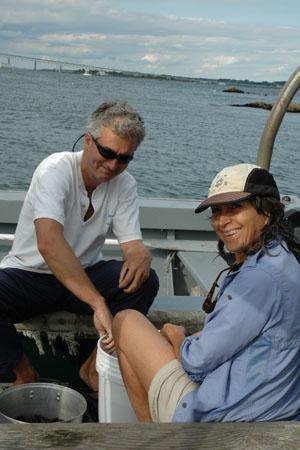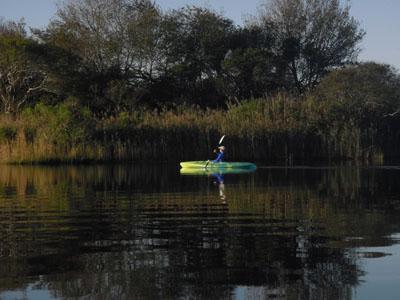Meet EPA Natural Resource Economist Marisa Mazzotta, Ph.D.

Marisa Mazzotta, Ph.D., has over 20 years of experience in the field of environmental & natural resource economics, as an analyst, researcher, writer, and educator. She currently works as an economist at EPA's Atlantic Coastal Environmental Sciences Division. Her research focuses on the public's valuation and prioritization of natural resources, the evaluation of ecosystem services, and the relationship between ecological changes and economic benefits.
How does your science matter?
I am working with a great team of economists and other social scientists to develop and apply methods for evaluating the ecosystem services and economic values that result from protecting and improving water quality in coastal estuaries, particularly those related to water recreation, which is an important driver of our New England coastal economies. With help from some of EPA’s water quality researchers, and in collaboration with Office of Water colleagues, we are also working to better understand people’s perceptions of water quality and how those relate to actual water quality metrics. This work will help our state and local partners in southern New England understand and articulate to stakeholders many of the benefits of reducing nutrients and pathogens entering coastal water bodies. It will also contribute to EPA’s efforts to understand the benefits of protecting surface water quality on a national scale.
Previously, colleagues and I developed an approach for assessing wetland restoration sites using non-monetary benefit indicators (the Rapid Benefit Indicators, or RBI, Approach). It uses readily available data to estimate and quantify ecosystem services and benefits to people around an ecological restoration site. Our goal was to help managers balance tradeoffs among sites, particularly in more urban areas where restoration may not result in optimal ecological function, yet many people may benefit. We worked with a local watershed group—the Woonasquatucket River Watershed Council—to apply the approach to actual decisions, using structured decision-making methods. I’m currently working with colleagues at ORD and at EPA’s Region 3 to apply the RBI approach within a decision support system that will support resilience decisions in the Chesapeake Bay watershed.
Overall, I hope that my work will help decision makers better understand the tradeoffs that they’re making and how the choices they make today affect both ecology and what people value as important.
- Rapid Benefit Indicators (RBI) Approach: Process for Assessing Social Benefits of Ecological Restoration
- Human Dimensions of Water Quality Research
If you could have dinner with any scientist, past or present, who would it be and what would you like to ask him or her?
I’d like to meet Sylvia Earle, an American oceanographer, because I think she has had a fascinating life and career, and because she speaks so eloquently and beautifully about the ocean. Also, she seems like a warm and interesting person. I would ask her about her vision for the ocean and our relationship with it. I would also ask about what it’s like to be in the deep ocean and how that has affected her life on land.
When did you first know you wanted to pursue science?
At first, I thought I wanted to be an oceanographer. After taking some science courses—the hard sciences—I realized that was not for me. Since I was kind of mathematically oriented, economics made sense instead, but that was the late 70s. At that time people who wanted to study economics went to business school or they went into investment banking and similar areas, but that did not interest me.
Then I discovered environmental economics and natural resource economics. I could use my background to combine the different interests that I had—the environment and the ocean and coasts, paired with economics.

If you were not a scientist, what do you think you would be doing?
I would be growing vegetables, or participating in our local food movement. There is a ton of that going on here in Rhode Island. I love being outside and I love being in the dirt. And food! I love being able to go out to the front yard and pick a bunch of stuff to make dinner.
Tell us about your background.
After growing up in Connecticut, I moved to Rhode Island to study at Brown, and I've been here ever since. I did my graduate work at the University of Rhode Island, and my dissertation work was a really fun project out on the east end of Long Island for the Peconic Estuary Program. It was a survey of people's values for restoration or protection of different resources. It included wetlands, eelgrass, shellfishing areas, and farmland. I've used some of the information from that study on some preliminary work related to Narragansett Bay and people's uses and preferences related to clean water.
Do you have any advice for students considering a career in science?
I advise economics or other social science students to take some ecology or other science courses (and vice versa), because one of the big things is communication across disciplines. We have different languages and different ways of looking at things.
I also suggest studying Geographic Information System (GIS). More and more of what we’re doing is looking at how people and ecosystem services are distributed across the landscape, how they move across the landscape, and how land uses change the provision of ecosystem services and values.
Editor's Note: The opinions expressed herein are those of the researcher alone. EPA does not endorse the opinions or positions expressed.
